"All I Do Know Is As We Age, The Weight Of Our Unsorted Baggage Becomes Heavier. With Each Passing Year,
"All I do know is as we age, the weight of our unsorted baggage becomes heavier. With each passing year, the price of our refusal to do that sorting rises higher and higher...Long ago, the defenses I built to withstand the stress of my childhood, to save what I had of myself, outlived their usefulness, and I've become an abuser of their once lifesaving powers. I relied on them wrongly to isolate myself, seal my alienation, cut me off from life, control others, and contain my emotions to a damaging degree. Now the bill collector is knocking, and his payment'll be in tears."
- Bruce Springsteen
More Posts from Sentimentalrobots and Others

Laika: 1954-1957
Opportunity Rover: 2004-2019
The HRT clinic I go to makes me kinda emotional whenever I go. It's staffed by a mix of balding middle aged queens and loud yet mousey lesbians and it genuinely feels like seeing my stupid gay high school friend group all grown up with successful and stable lives. We are all going to make it.
How unions won a 30% raise for every fast food worker in California

Tonight (September 14), I'm hosting the EFF Awards in San Francisco. On September 22, I'm (virtually) presenting at the DIG Festival in Modena, Italy.

Anything that can't go on forever will eventually stop. 40 years of declining worker power shattered the American Dream (TM), producing multiple generations whose children fared worse than their parents, cratering faith in institutions and hope for a better future.
The American neoliberal malaise – celebrated in by "centrists" who insisted that everything was fine and nothing could be changed – didn't just lead to a sense of helplessness, but also hopelessness. Denialism and nihilism are Siamese twins, and the YOLO approach to the climate emergency, covid mitigation, the housing crisis and other pressing issues can't be disentangled from the Thatcherite maxim that "There is NoA lternative." If there's no alternative, then we're doomed. Dig a hole, climb inside, pull the dirt down on top of yourself.
But anything that can't go on forever will eventually stop. For decades, leftists have taken a back seat to liberals in the progressive coalition, allowing "unionize!" to be drowned out by "learn to code!" The liberal-led coalition ceded the mantle of radical change to fake populist demagogues on the right.
This opened a space for a mirror-world politics that insisted that "conservatives" were the true defenders of women (because they were transphobes), of bodily autonomy (because they were vaccine deniers), of the environment (because they opposed wind-farms) and of workers (because they opposed immigration):
https://pluralistic.net/2023/09/05/not-that-naomi/#if-the-naomi-be-klein-youre-doing-just-fine
Anything that can't go on forever will eventually stop. A new coalition dedicated to fighting corporate power has emerged, tackling capitalism's monopoly power, and the corruption and abuse of workers it enables. That coalition is global, it's growing, and it's kicking ass.
Case in point: California just passed a law that will give every fast-food worker in the state a 30% raise. This law represents a profound improvement to the lives of the state's poorest workers – workers who spend long hours feeding their neighbors, but often can't afford to feed themselves at the end of a shift.
But just as remarkable as the substance of this new law is the path it took – a path that runs through a new sensibility, a new vibe, that is more powerful than mere political or legal procedure. The story is masterfully told in The American Prospect by veteran labor writer Harold Meyerson:
https://prospect.org/labor/2023-09-13-half-million-california-workers-get-raise/
The story starts with Governor Newsom signing a bill to create a new statewide labor-business board to mediate between workers and bosses, with the goal of elevating the working conditions of the state's large, minimum-wage workforce. The passage of this law triggered howls of outrage from the state's fast-food industry, who pledged to spend $200m to put forward a ballot initiative to permanently kill the labor-business board.
This is a familiar story. In 2019, California's state legislature passed AB-5, a bill designed to end the gig-work fiction that people whose boss is an algorithm are actually "independent businesses," rather than employees. AB5 wasn't perfect – it swept up all kinds of genuine freelancers, like writers who contributed articles to many publications – but the response wasn't aimed at fixing the bad parts. It was designed to destroy the good parts.
After AB-5, Uber and Lyft poured more than $200m into Prop 22, a ballot initiative designed to permanently bar the California legislature from passing any law to protect "gig workers." Prop 22's corporate backers flooded the state with disinformation, and procured a victory in 2020. The aftermath was swift and vicious, with Prop 22 used as cover in mass-firings of unionized workers across the state's workforce:
https://pluralistic.net/2021/01/05/manorialism-feudalism-cycle/#prop22
Workers and the politicians who defend them were supposed to be crushed by Prop 22. Its message was "there is no alternative." "Abandon hope all ye who enter here." "Resistance is futile." Prop 22 was worth spending $200m on because it wouldn't just win this fight – it would win all fights, forever.
But that's not what happened. When the fast-food barons announced that they were going to pump another $200m into a state ballot initiative to kill fair wages for food service workers, they got a hell of a surprise. SEIU – a union that has long struggled to organize fast-food workers – collaborated with progressive legislators to introduce a pair of new, even further-reaching bills.
One bill would have made the corporate overseers of franchise businesses jointly liable for lawbreaking by franchisees – so if a McDonald's restaurant owner stole their employees' wages, McDonalds corporate would also be on the hook for the offense. The second bill would restore funding and power to the state Industrial Welfare Commission, which once routinely intervened to set wages and working standards in many state industries:
https://www.gtlaw-laborandemployment.com/2023/08/the-california-iwc-whats-old-is-new-again/
Fast-food bosses fucked around, and boy did they find out. Funding for the IWC passed the state budget, and the franchisee joint liability is set to pass the legislature this week. The fast-food bosses cried uncle and begged Newsom's office for a deal. In exchange for defunding the IWC and canceling the vote on the liability bill, the industry has agreed to an hourly wage increase for the state's 550,000 fast-food workers, from $15.50 to $20, taking effect in April.
The deal also includes annual raises of either 3.5% or the real rise in cost of living. It keeps the labor-management council that the original bill created (the referendum on killing that council has been cancelled). The council will include two franchisees, two fast food corporate reps, two union reps, two front-line fast-food workers and a member of the public. It will have the power to direct the state Department of Labor to directly regulate working conditions in fast-food restaurants, from health and safety to workplace violence.
It's been nearly a century since business/government/labor boards like this were commonplace. The revival is a step on the way to bringing back the practice of sectoral bargaining, where workers set contracts for all employers in an industry. Sectoral bargaining was largely abolished through the dismantling of the New Deal, though elements of it remain. Entertainment industry unions are called "guilds" because they bargain with all the employers in their sector – which is why all of the Hollywood studios are being struck by SAG-AFTRA and the WGA.
So what changed between 2020 – when rideshare bosses destroyed democratic protections for workers by flooding the zone with disinformation to pass Prop 22 – and 2023, when the fast food bosses folded like a cheap suit? It wasn't changes to the laws governing ballot initiatives, nor was it a lack of ready capital for demolishing worker rights. Fast food executives weren't visited by three ghosts in the night who convinced them to care for their workers. Their hearts didn't grow by three sizes.
What changed was the vibe. The Hot Labor Summer was a rager, and it's not showing any signs of slowing. Obviously that's true in California, where nurses and hotel workers are also striking, and where strikebreaking companies like Instawork ("Uber for #scabs") attract swift regulatory sanction, rather than demoralized capitulation:
https://pluralistic.net/2023/07/30/computer-says-scab/#instawork
The hot labor summer wasn't a season – it was a turning point. Everyone's forming unions. Think of Equity Strip NoHo, the first strippers' union in a generation, which won recognition from their scumbag bosses at North Hollywood's Star Garden Club, who used every dirty trick to kill workplace democracy.
The story of the Equity Strippers is amazing. Two organizers, Charlie and Lilith, appeared on Adam Conover's Factually podcast to describe the incredible creativity and solidarity they used to win recognition, and the continuing struggle to get a contract out of their bosses, who are still fucking around and assuming they will not find out:
https://www.youtube.com/watch?v=_fgXihmHIZk
Like the fast-food bosses, the Star Garden's owners are in for a surprise. One of the most powerful elements of the Equity Strippers' story is the solidarity of their customers. Star Garden's owners assumed that their clientele were indiscriminate, horny assholes who didn't care about the wellbeing of the workers they patronized, and would therefore cross a picket-line because parts is parts.
Instead, the bar's clientele sided with the workers. People everywhere are siding with workers. A decade ago, when video game actors voted on a strike, the tech workers who coded the games were incredibly hostile to them. "Why should you get residuals for your contribution to this game when we don't?"
But SAG-AFTRA members who provide voice acting for games just overwhelmingly voted to authorize a strike, and this time the story is very different. This time, tech workers are ride-or-die for their comrades in the sound booths:
https://www.latimes.com/entertainment-arts/business/story/2023-09-13/video-game-voice-actor-sag-strike-interactive-agreement-actors-strike
What explains the change in tech workers' animal sentiments? Well, on the one hand, labor rights are in the air. The decades of cartoonish, lazy dismissals of labor struggles have ended. And on the other hand, tech workers have been proletarianized, with 260,000 layoffs in the sector, including 12,000 layoffs at Google that came immediately after a stock buyback that would have paid those 12,000 salaries for the next 27 years:
https://doctorow.medium.com/the-proletarianization-of-tech-workers-ad0a6b09f7e6
Larry Lessig once laid out a theory of change that holds that our society is governed by four forces: law (what's legal), norms (what's socially acceptable), markets (what's profitable) and code (what's technologically possible):
https://cs.stanford.edu/people/eroberts/cs181/projects/2010-11/CodeAndRegulation/about.html
These four forces interact. When queer relationships were normalized, it made it easier to legalize them, too – and then the businesses that marriage equality became both a force for more normalization and legal defense.
When Lessig formulated this argument, much of the focus was on technology – how file-sharing changed norms, which changed law. But as the decades passed, I've come to appreciate what the argument says about norms, the conversations we have with one another.
Neoliberalism wants you to think that you're an individual, not a member of a polity. Neoliberalism wants you to bargain with your boss as a "free agent," not a union member. It wants you to address the climate emergency by recycling more carefully – not by demanding laws banning single-use plastics. It wants you to fight monopolies by shopping harder – not by busting trusts.
But that's not what we're doing – not anymore. We're forming unions. We're demanding a Green New Deal. And we're busting some trusts. The DoJ Antitrust Division case against Google is the (first) trial of the century, reviving the ancient and noble practice of fighting monopolies with courts, not empty platitudes.
The trial is incredible, and Yosef Weitzman's reporting on Big Tech On Trial is required reading. I'm following it closely (thankfully, there's a fulltext RSS feed):
https://www.bigtechontrial.com/p/what-makes-google-great
The neoliberal project of instilling learned helplessness about corporate power has hit the wall, and it's wrecked. The same norms that made us furious enough to put Google on trial are the norms that made us angry – not cynical – about Clarence Thomas's bribery scandals:
https://pluralistic.net/2023/04/06/clarence-thomas/#harlan-crow
And they're the same norms that made us support our striking comrades, from hotel housekeepers to Hollywood actors, from strippers to Starbucks baristas:
https://thetyee.ca/News/2023/09/13/Starbucks-Workers-Back-At-Strike/
Yes, Starbucks baristas. The Starbucks unions that won hard-fought recognition drives are now fighting the next phase of corporate fuckery: Starbucks corporate's refusal to bargain for a contract. Starbucks is betting that if they just stall long enough, the workers who support the union will move on and they'll be able to go back to abusing their workers without worrying about a union.
They're fucking around, and they're finding out. Starbucks workers at two shops in British Columbia – Clayton Crossing in Surrey and Valley Centre in Langley – have authorized strikes with a 91% majority:
https://thetyee.ca/News/2023/09/13/Starbucks-Workers-Back-At-Strike/
Where did the guts to do this come from? Not from labor law, which remains disgustingly hostile to workers (though that's changing, as we'll see below). It came from norms. It came from getting pissed off and talking about it. Shouting about it. Arguing about it.
Laws, markets and code matter, but they're nothing without norms. That's why Uber and Lyft were willing to spend $200m to fight fair labor practices. They didn't just want to keep their costs low – they wanted to snuff out the vibe, the idea that workers deserve a fair deal.
They failed. The idea didn't die. It thrived. It merged with the idea that corporations and the wealthy corrupt our society. It was joined by the idea that monopolies harm us all. They're losing. We're winning.
The BC Starbucks workers secured 91% majorities in their strike votes. This is what worker power looks like. As Jane McAlevey writes in her Collective Bargain, these supermajorities – ultramajorities – are how we win.
https://doctorow.medium.com/a-collective-bargain-a48925f944fe
The neoliberal wing of the Democratic party hires high-priced consultants who advise them to seek 50.1% margins of victory – and then insist that nothing can be done because we live in the Manchin-Synematic Universe, where razor-thin majorities mean that there is no alternative. Labor organizers fight for 91% majorities – in the face of bosses' gerrymandering, disinformation and voter suppression – and get shit done.
Shifting the norms – having the conversations – is the tactic, but getting shit done is the goal. The Biden administration – a decidedly mixed bag – has some incredible, technically skilled, principled fighters who know how to get shit done. Take Lina Khan, who revived the long-dormant Section 5 of the Federal Trade Act, which gives her broad powers to ban "unfair and deceptive" practices:
https://pluralistic.net/2023/01/10/the-courage-to-govern/#whos-in-charge
Khan's wielding this broad power in all kinds of exciting ways. For example, she's seeking a ban on noncompetes, a form of bondage that shackles workers to shitty bosses by making it illegal to work for anyone else in the same industry:
https://pluralistic.net/2022/02/02/its-the-economy-stupid/#neofeudal
Noncompete apologists argue that these merely protect employers' investment in training and willingness to share sensitive trade secrets with employees. But the majority of noncompetes are applied to fast food workers – yes, the same workers who just won a 30%, across-the-board raise – in order to prevent Burger King cashiers from seeking $0.25/hour more at a local Wendy's.
Meanwhile, the most trade-secret intensive, high-training industry in the world – tech – has no noncompetes. That's not because tech bosses are good eggs who want to do right by their employees – it's because noncompetes are banned in California, where tech is headquartered.
But in other states, where noncompetes are still allowed, bosses have figured out how to use them as a slippery slope to a form of bondage that beggars the imagination. I'm speaking of the Training Repayment Agreement Provision (AKA, the TRAP), a contractual term that forces workers who quit or get fired to pay their ex-bosses tens of thousands of dollars, supposedly to recoup the cost of training them:
https://pluralistic.net/2022/08/04/its-a-trap/#a-little-on-the-nose
Now, TRAPs aren't just evil, they're also bullshit. Bosses show pet-groomers or cannabis budtenders a few videos, throw them a three-ring binder, and declare that they've received a five-figure education that they must repay if they part ways with their employers. This gives bosses broad latitude to abuse their workers and even order them to break the law, on penalty of massive fines for quitting.
If this sounds like an Unfair Labor Practice to you, you're not alone. NLRB General Counsel Jennifer Abruzzo agrees with you. She's another one of those Biden appointees with a principled commitment to making life better for American workers, and the technical chops to turn that principle into muscular action.
In a case against Juvly Aesthetics – an Ohio-based chain of "alternative medicine" and "aesthetic services" – Abruzzo argues that noncompetes and TRAPs are Unfair Labor Practices that violate the National Labor Relations Act and cannot be enforced:
https://www.nlrb.gov/case/09-CA-300239
Two ex-Juvly employees have been hit with $50-60k "repayment" bills for quitting – one after refusing to violate Ohio law by performing "microneedling," another for quitting after having their wages stolen and then refusing to sign an "exit agreement":
https://prospect.org/labor/2023-09-14-nlrb-complaint-calls-noncompete-agreement-unfair-labor-practice/
If the NLRB wins, the noncompete and TRAP clauses in the workers' contracts will be voided, and the workers will get fees, missed wages, and other penalties. More to the point, the case will set the precedent that noncompetes are generally unenforceable nationwide, delivering labor protection to every worker in every sector in America.
Abruzzo has been killing it lately: just a couple weeks ago, she set a precedent that any boss that breaks labor law during a union drive automatically loses, with instant recognition for the union as a penalty (rather than a small fine, as was customary):
https://pluralistic.net/2023/09/06/goons-ginks-and-company-finks/#if-blood-be-the-price-of-your-cursed-wealth
Abruzzo is amazing – as are her colleagues at the NLRB, FTC, DOJ, and other agencies. But the law they're making is downstream of the norms we set. From the California lawmakers who responded to fast food industry threats by introducing more regulations to the strip-bar patrons who refused to cross the picket-line to the legions of fans dragging Drew Barrymore for scabbing, the public mood is providing the political will for real action:
https://www.motherjones.com/media/2023/09/drew-barrymores-newest-role-scab/
The issues of corruption, worker rights and market concentration can't – and shouldn't – be teased apart. They're three facets of the same fight – the fight against oligarchy. Rarely do those issues come together more clearly than in the delicious petard-hoisting of Dave Clark, formerly the archvillain of Amazon, and now the victim of its bullying.
As Maureen Tkacik writes for The American Prospect, Clark had a long and storied career as Amazon's most vicious and unassuming ghoul, a sweatervested, Diet-Coke-swilling normie whose mild manner disguised a vicious streak a mile wide:
https://prospect.org/power/2023-09-14-catch-us-if-you-can-dave-clark-amazon/
Clark earned his nickname, "The Sniper," as a Kentucky warehouse supervisor; the name came from his habit of "lurking in the shadows [and] scoping out slackers he could fire." Clark created Amazon Flex, the "gig work" version of Amazon delivery drivers where randos in private vehicles were sent out to delivery parcels. Clark also oversaw tens of millions of dollars in wage-theft from those workers.
We have Clark to thank for the Amazon drivers who had to shit in bags and piss in bottles to make quota. Clark was behind the illegal union-busting tactics used against employees in the Bessamer, Alabama warehouse. We have Clark to thank for the Amazon chat app that banned users from posting the words "restroom," "slave labor," "plantation," and "union":
https://pluralistic.net/2022/04/05/doubleplusrelentless/#quackspeak
But Clark doesn't work for Amazon anymore. After losing a power-struggle to succeed Jeff Bezos – the job went to "longtime rival" Andy Jassy – he quit and went to work for Flexport, a logistics company that promised to provide sellers that used non-Amazon services with shipping. Flexport did a deal with Shopify, becoming its "sole official logistics partner."
But then Shopify did another logistics deal – with Amazon. Clark was ordered to tender his resignation or face immediate dismissal.
How did all this happen? Well, there are two theories. The first is that Shopify teamed up with Amazon to stab Flexport in the back, then purged all the ex-Amazonians from the Flexport upper ranks. The other is that Clark was a double-agent, who worked with Amazon to sabotage Flexport, and was caught and fired.
But either way, this is a huge win for Amazon, a monopolist who is in the FTC's crosshairs thanks to the anti-corporate vibe-shift that has consumed the nation and the world. As the sole major employer for this kind of logistics, Amazon is a de facto labor regulator, deciding who can work in the sector. The FTC's enforcement action isn't just about monopoly – it's about labor.
Now, Clark is a rich, powerful white dude, not the sort of person who needs a lot of federal help to protect his labor rights. When liberals called the shot in the progressive coalition, they scolded leftists not to speak of class, but rather to focus on identity – to be intersectionalists.
That was a trick. There's no incompatibility between caring about class and caring about gender, race and sexual orientation. Those fast food workers who are about to get a 30% wage-hike in California? Overwhelmingly Black or brown, overwhelmingly female.
The liberal version of intersectionalism observes a world run by 150 rich white men and resolves to replace half of them with women, queers and people of color. The leftist version seeks to abolish the system altogether. The leftist version of intersectionalism cares about bias and discrimination not just because of how it makes people feel, but because of how it makes them live. It cares about wages, housing, vacations, child care – the things you can't get because of your identity.
The fight for social justice is a fight for worker justice. Eminently guillotineable monsters like Tim "Avocado Toast" Gurner advocate for increasing unemployment by "40-50%" – but Gurner is just saying what other bosses are thinking:
https://jacobin.com/2023/09/tim-gurner-capitalists-neoliberalism-unemployment-precarity
Garner is 100% right when he says: "There’s been a systematic change where employees feel the employer is extremely lucky to have them, as opposed to the other way around."
And then he says this: "So it’s a dynamic that has to change. We’ve got to kill that attitude, and that has to come through hurt in the economy."
Garner knows that the vibes are upstream of the change. The capitalist dream starts with killing our imagination, to make us believe that "there is no alternative." If we can dream bigger than "better representation among oligarchs" when we might someday dream of no oligarchs. That's what he fears the most.
Watch the video of Garner. Look past the dollar-store Gordon Gecko styling. That piece of shit is terrified.
And he should be.

If you'd like an essay-formatted version of this post to read or share, here's a link to it on pluralistic.net, my surveillance-free, ad-free, tracker-free blog:
https://pluralistic.net/2023/09/14/prop-22-never-again/#norms-code-laws-markets


EFF Awards, San Francisco, September 14

ʻIʻiwi
Drepanis coccinea Hakalau Forest NWR Mauna Kea, Hawaiʻi

fucking relatable master yupa
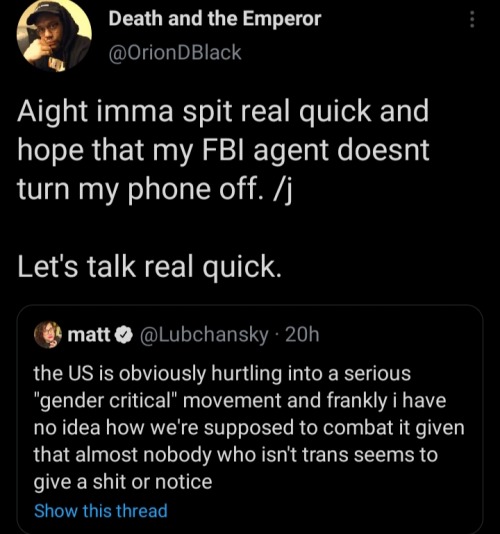
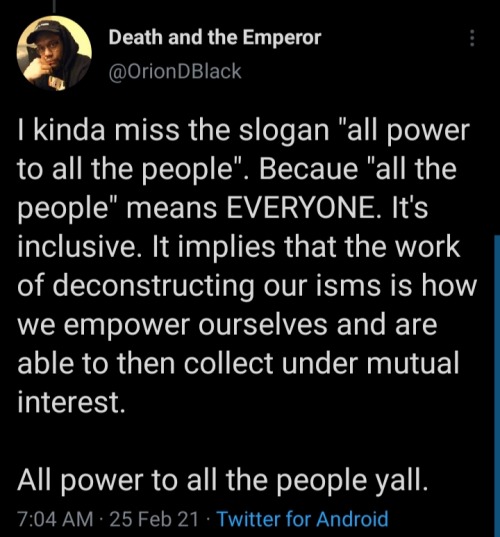
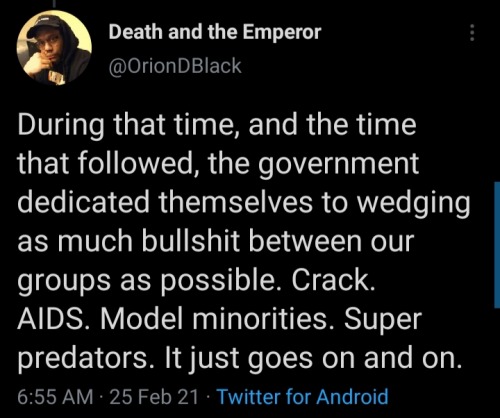
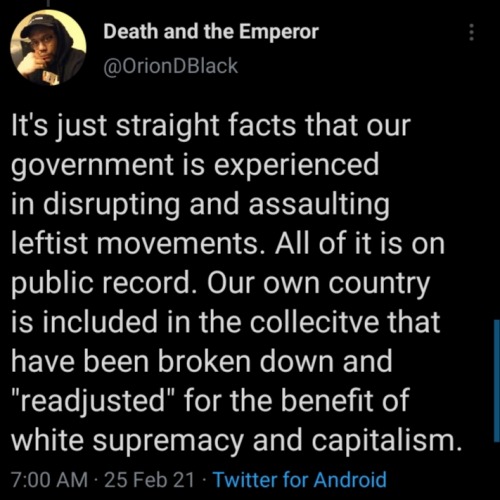
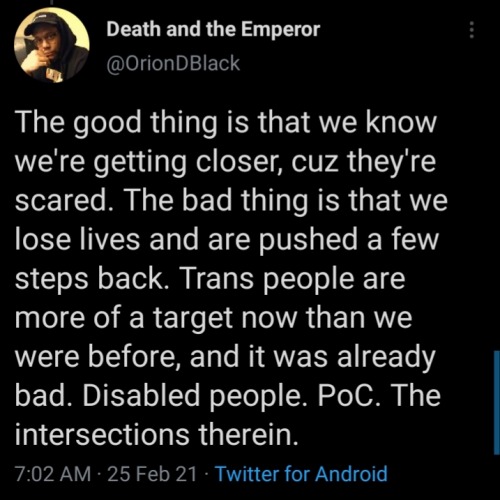
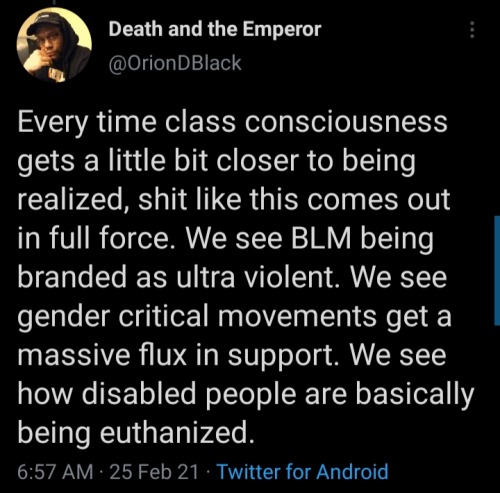
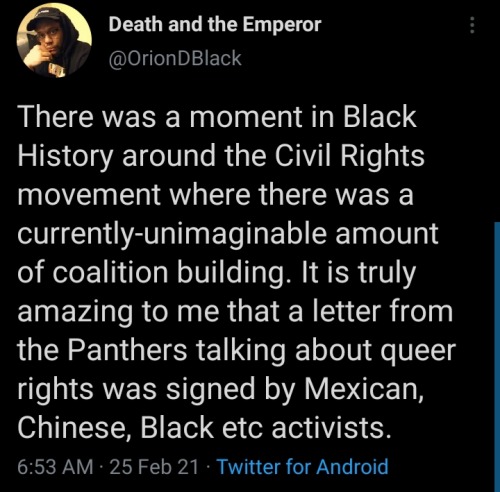
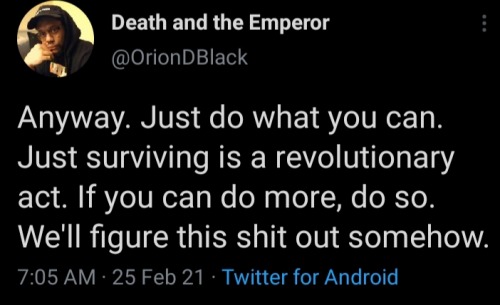


“When I was 26, I went to Indonesia and the Philippines to do research for my first book, No Logo. I had a simple goal: to meet the workers making the clothes and electronics that my friends and I purchased. And I did. I spent evenings on concrete floors in squalid dorm rooms where teenage girls—sweet and giggly—spent their scarce nonworking hours. Eight or even 10 to a room. They told me stories about not being able to leave their machines to pee. About bosses who hit. About not having enough money to buy dried fish to go with their rice.
They knew they were being badly exploited—that the garments they were making were being sold for more than they would make in a month. One 17-year-old said to me: “We make computers, but we don’t know how to use them.”
So one thing I found slightly jarring was that some of these same workers wore clothing festooned with knockoff trademarks of the very multinationals that were responsible for these conditions: Disney characters or Nike check marks. At one point, I asked a local labor organizer about this. Wasn’t it strange—a contradiction?
It took a very long time for him to understand the question. When he finally did, he looked at me like I was nuts. You see, for him and his colleagues, individual consumption wasn’t considered to be in the realm of politics at all. Power rested not in what you did as one person, but what you did as many people, as one part of a large, organized, and focused movement. For him, this meant organizing workers to go on strike for better conditions, and eventually it meant winning the right to unionize. What you ate for lunch or happened to be wearing was of absolutely no concern whatsoever.
This was striking to me, because it was the mirror opposite of my culture back home in Canada. Where I came from, you expressed your political beliefs—firstly and very often lastly—through personal lifestyle choices. By loudly proclaiming your vegetarianism. By shopping fair trade and local and boycotting big, evil brands.
These very different understandings of social change came up again and again a couple of years later, once my book came out. I would give talks about the need for international protections for the right to unionize. About the need to change our global trading system so it didn’t encourage a race to the bottom. And yet at the end of those talks, the first question from the audience was: “What kind of sneakers are OK to buy?” “What brands are ethical?” “Where do you buy your clothes?” “What can I do, as an individual, to change the world?”
Fifteen years after I published No Logo, I still find myself facing very similar questions. These days, I give talks about how the same economic model that superpowered multinationals to seek out cheap labor in Indonesia and China also supercharged global greenhouse-gas emissions. And, invariably, the hand goes up: “Tell me what I can do as an individual.” Or maybe “as a business owner.”
The hard truth is that the answer to the question “What can I, as an individual, do to stop climate change?” is: nothing. You can’t do anything. In fact, the very idea that we—as atomized individuals, even lots of atomized individuals—could play a significant part in stabilizing the planet’s climate system, or changing the global economy, is objectively nuts. We can only meet this tremendous challenge together. As part of a massive and organized global movement.
The irony is that people with relatively little power tend to understand this far better than those with a great deal more power. The workers I met in Indonesia and the Philippines knew all too well that governments and corporations did not value their voice or even their lives as individuals. And because of this, they were driven to act not only together, but to act on a rather large political canvas. To try to change the policies in factories that employ thousands of workers, or in export zones that employ tens of thousands. Or the labor laws in an entire country of millions. Their sense of individual powerlessness pushed them to be politically ambitious, to demand structural changes.
In contrast, here in wealthy countries, we are told how powerful we are as individuals all the time. As consumers. Even individual activists. And the result is that, despite our power and privilege, we often end up acting on canvases that are unnecessarily small—the canvas of our own lifestyle, or maybe our neighborhood or town. Meanwhile, we abandon the structural changes—the policy and legal work— to others.”
- Naomi Klein
-
 frenchsiren reblogged this · 1 week ago
frenchsiren reblogged this · 1 week ago -
 mindfulmindfucking liked this · 1 week ago
mindfulmindfucking liked this · 1 week ago -
 daemon-soul liked this · 1 week ago
daemon-soul liked this · 1 week ago -
 mostlygolden liked this · 1 week ago
mostlygolden liked this · 1 week ago -
 sleepylycoris liked this · 1 week ago
sleepylycoris liked this · 1 week ago -
 hypnoticdom1 reblogged this · 1 week ago
hypnoticdom1 reblogged this · 1 week ago -
 settlers-of-caltrans reblogged this · 1 week ago
settlers-of-caltrans reblogged this · 1 week ago -
 mistermaji liked this · 2 weeks ago
mistermaji liked this · 2 weeks ago -
 alwaysneedyforsir liked this · 2 weeks ago
alwaysneedyforsir liked this · 2 weeks ago -
 transparentair reblogged this · 2 weeks ago
transparentair reblogged this · 2 weeks ago -
 purrkittenpurr liked this · 2 weeks ago
purrkittenpurr liked this · 2 weeks ago -
 lord-ofbears liked this · 2 weeks ago
lord-ofbears liked this · 2 weeks ago -
 werehouse reblogged this · 2 weeks ago
werehouse reblogged this · 2 weeks ago -
 werehouse liked this · 2 weeks ago
werehouse liked this · 2 weeks ago -
 yethegodless liked this · 2 weeks ago
yethegodless liked this · 2 weeks ago -
 flaming-ramen reblogged this · 2 weeks ago
flaming-ramen reblogged this · 2 weeks ago -
 amphetamine-deficiency reblogged this · 2 weeks ago
amphetamine-deficiency reblogged this · 2 weeks ago -
 sillybuggy liked this · 2 weeks ago
sillybuggy liked this · 2 weeks ago -
 osotvesna liked this · 2 weeks ago
osotvesna liked this · 2 weeks ago -
 ladyvelkor reblogged this · 2 weeks ago
ladyvelkor reblogged this · 2 weeks ago -
 ladyvelkor liked this · 2 weeks ago
ladyvelkor liked this · 2 weeks ago -
 vaporwaveparent liked this · 2 weeks ago
vaporwaveparent liked this · 2 weeks ago -
 dumbcutie liked this · 2 weeks ago
dumbcutie liked this · 2 weeks ago -
 putmeinaparka reblogged this · 2 weeks ago
putmeinaparka reblogged this · 2 weeks ago -
 dominic-agrusa reblogged this · 2 weeks ago
dominic-agrusa reblogged this · 2 weeks ago -
 dominic-agrusa liked this · 2 weeks ago
dominic-agrusa liked this · 2 weeks ago -
 notsatyr liked this · 2 weeks ago
notsatyr liked this · 2 weeks ago -
 smallmeanie reblogged this · 2 weeks ago
smallmeanie reblogged this · 2 weeks ago -
 smallmeanie liked this · 2 weeks ago
smallmeanie liked this · 2 weeks ago -
 terdiscussie liked this · 2 weeks ago
terdiscussie liked this · 2 weeks ago -
 viswasakhi liked this · 2 weeks ago
viswasakhi liked this · 2 weeks ago -
 refractedamber reblogged this · 2 weeks ago
refractedamber reblogged this · 2 weeks ago -
 refractedamber liked this · 2 weeks ago
refractedamber liked this · 2 weeks ago -
 fromstarstuff liked this · 2 weeks ago
fromstarstuff liked this · 2 weeks ago -
 lovedbee liked this · 2 weeks ago
lovedbee liked this · 2 weeks ago -
 miminimum liked this · 2 weeks ago
miminimum liked this · 2 weeks ago -
 thornaes liked this · 2 weeks ago
thornaes liked this · 2 weeks ago -
 swedishrapperbutgood liked this · 2 weeks ago
swedishrapperbutgood liked this · 2 weeks ago -
 petewentzdiscourse reblogged this · 2 weeks ago
petewentzdiscourse reblogged this · 2 weeks ago -
 petewentzdiscourse liked this · 2 weeks ago
petewentzdiscourse liked this · 2 weeks ago -
 mychemathedisco liked this · 2 weeks ago
mychemathedisco liked this · 2 weeks ago -
 eruditetyro liked this · 2 weeks ago
eruditetyro liked this · 2 weeks ago -
 kramerswhore liked this · 2 weeks ago
kramerswhore liked this · 2 weeks ago -
 riothrrrrley liked this · 2 weeks ago
riothrrrrley liked this · 2 weeks ago -
 dearpercocet reblogged this · 2 weeks ago
dearpercocet reblogged this · 2 weeks ago -
 dearpercocet liked this · 2 weeks ago
dearpercocet liked this · 2 weeks ago -
 hannibalbabygirlifier reblogged this · 2 weeks ago
hannibalbabygirlifier reblogged this · 2 weeks ago -
 hannibalbabygirlifier liked this · 2 weeks ago
hannibalbabygirlifier liked this · 2 weeks ago -
 sink-pasta reblogged this · 2 weeks ago
sink-pasta reblogged this · 2 weeks ago -
 sink-pasta liked this · 2 weeks ago
sink-pasta liked this · 2 weeks ago

General interest @culturesinglarityGay shit and lots of dicks @demon-core-incidentDeep Space Nine relevance @temba-his-arms-wideHorny men's tailoring @captaindadsmenshosiery Pfp courtesy of @anonymous-leemur
207 posts